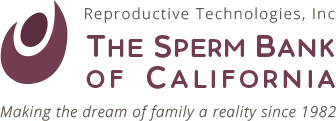- If your donor participated in our Identity-Release® Program and you wish to request your donor’s identity or have questions about the process, please contact us.
- If your donor participated in our anonymous program and you have questions or wish to see if he is willing to release additional information, please call 510.841.1858 and ask to speak with our Executive Director.
- If you wish to find others who share your donor, read more information about our Family Contact List.
- Research is accumulating on the experiences of donor-conceived people as they grow up and become eligible to receive identifying information about the donor. There’s also research about their parents and donors. You may have even participated in some of these studies. Read more about our research.
- If you have general questions, you can contact us or call 510.841.1858 and ask to speak with our Executive Director.
- Resources for donor-conceived individuals are also growing. We have listed some of our favorite resources below and you may also wish to see our recommended reading.
Some additional resources for donor-conceived people (and parents, too!)
- Donor Insemination Guide from COLAGE – supporting our community. The DI Guide is written by and for donor-conceived individuals raised by one or more lesbian, gay, bisexual, transgender or queer (LGBTQ+) parents. Have a heterosexual parent(s)? This comprehensive one-of-a-kind resource comes highly recommended for all donor-conceived people regardless of family type. Also check out other COLAGE resources.
- Donor Conceived Community. A great support whether you’ve known for years or just found out you’re donor-conceived, DCC is a safe place to connect with people facing a similar journey. Peer support and resources including for people navigating DNA discoveries (aka ‘misattributed parentage’).
- Donor Conception Network. Another great support for donor-conceived people and their parents. Based in the UK, but still very relevant. Meet others going through similar experiences, access online articles and a library, buy books, get newsletters, and advocacy. Sign up for resources and services specifically for your situation.
